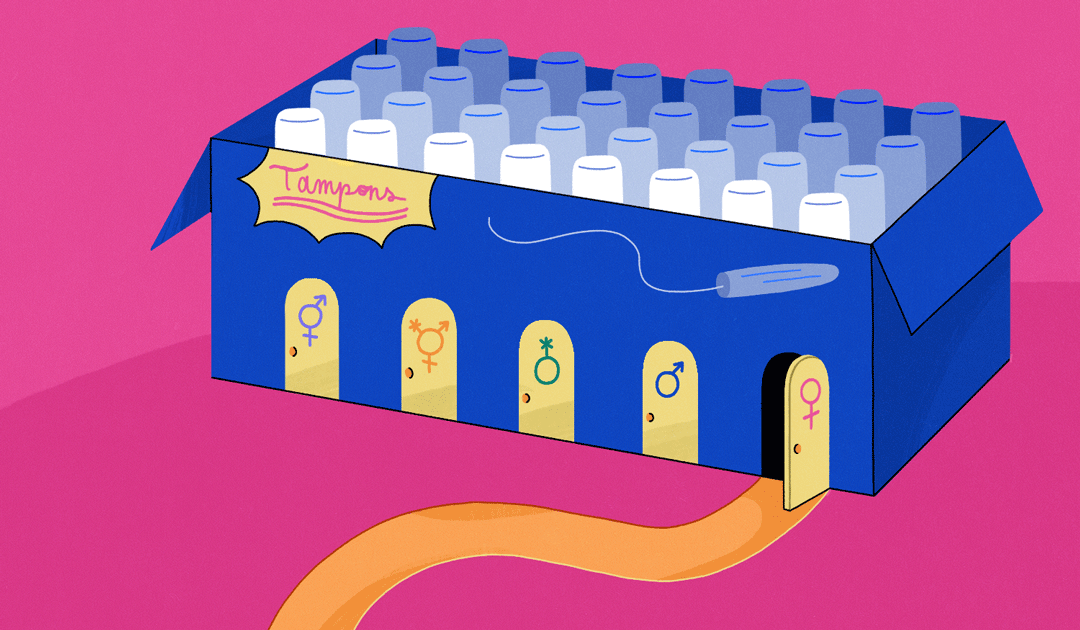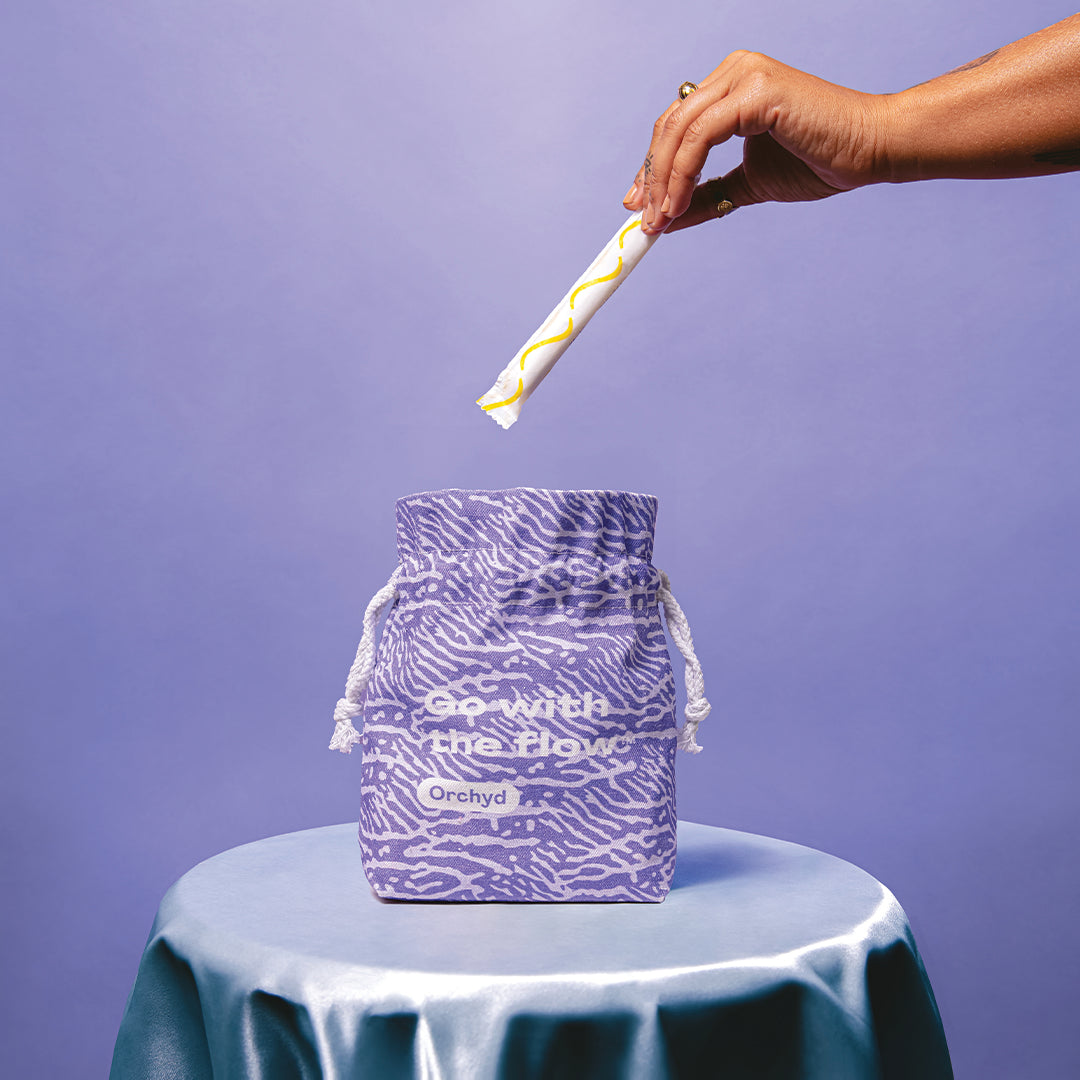
Gender & Menstruation
Share
 Women aren’t the only people who menstruate. And some women don’t menstruate at all. Ignoring this fact means excluding entire demographics from discussions surrounding menstruation. Trans men, nonbinary people, and intersex people menstruate too, and they need to be included in the conversation.
Women aren’t the only people who menstruate. And some women don’t menstruate at all. Ignoring this fact means excluding entire demographics from discussions surrounding menstruation. Trans men, nonbinary people, and intersex people menstruate too, and they need to be included in the conversation.
It’s crucial to understand that your gender and your sex are not the same things. Sex is assigned at birth and is based on what genitals and chromosomes you have. Gender is a social construct that tells us how we should behave based on our sex.
Gender identity is how you feel inside about your gender—some people feel that their assigned sex and gender are aligned, and others feel that their assigned sex is of the other gender. Others feel neither male nor female. Regardless of how someone identifies, these distinctions prove that saying that “only women can menstruate” is an antiquated and false idea.
Some cisgender women also do not have periods, due to a variety of medical reasons. All of this information confirms how crucial it is to use inclusive language when talking about menstruation.
In an article by Clue, the author makes an important point:
“Our bodies do not determine our identities, and we are so much more than merely bodies. It’s important for all of us to have a context for our experiences and a way of talking about them. We can all be part of changing the dialogue about menstruation, and, by extension, health. People of all genders have periods, and barrier-free access to support and information benefits us all.”
When Always removed the female symbol from their menstrual products in 2019 because they recognized that it promoted exclusivity, they faced a backlash from women with different points of view. Some women felt that this change was disrespectful to the female experience and womanhood as a whole. But the bonds and shared experiences of womanhood can still be enjoyed along with the inclusion of all people who menstruate. There is absolutely no harm to cisgender women in including others, regardless of their gender identity—it simply allows all people who menstruate to be included in the conversation, and to know that there are resources out there for them.
According to the American Civil Liberties Union (ACLU), “menstrual stigma and period poverty can hit trans and non-binary people particularly hard. Trans people are three times as likely to be unemployed and more than twice as likely to be living in poverty as the general population.”
This disturbing fact, coupled with the fact that free menstrual products are almost never available in men’s restrooms, homeless shelters, and prisons, means that menstrual equity is an even more challenging feat for trans and nonbinary people.
This argument also comes to the surface when it comes to fighting for menstrual equity through legal action. According to the ACLU, “Some arguments that challenge discriminatory laws based on sex-linked characteristics have made the point that ‘only women’ menstruate, get pregnant, or breastfeed.” The lack of representation for other gender identities in legal discussions surrounding menstrual equity is hurting people who need access to menstrual products, and who just want to be able to pick up a box of tampons without being automatically labeled as a woman.
As the ACLU states, “We don’t need to erase trans or non-binary people to show that barriers to menstrual equity, such as the tax on menstrual products, are unconstitutional sex discrimination. This tax targets a bodily function associated with women for less favorable treatment. It relies on sexist ideas that women’s needs are frivolous and unnecessary. It is irrational, and it directly affects cis and trans women, trans men, and non-binary people. It’s unfair, unconstitutional, and illegal.”
For all of these reasons, it is clear that menstruation and discussions about menstruation are not reserved for women only. Continuing to uphold that belief creates more barriers between us all, and cuts trans and nonbinary people who menstruate out of legal movements about menstrual equity. Gender in no way defines menstruation, nor should it. That is why we at Orchyd are on a mission to modernize period care for all menstruators.

